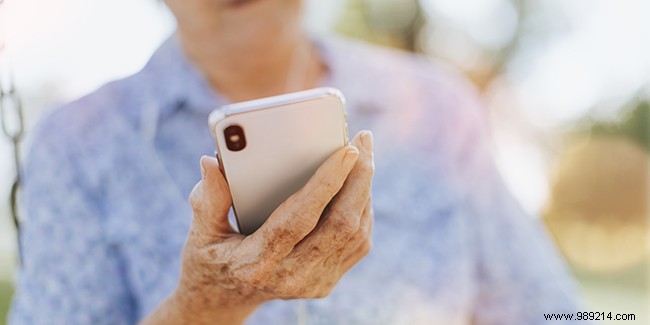
Technology and the elderly form an odd couple in the collective imagination. We are used to representing our seniors completely overwhelmed since the days of the minitel and hertzian channels, and it is true that they often observe half-intrigued, half-amused their grandchildren surrounded by their panoply of gadgets . So from there to imagine them with a mini computer in their pocket, there is indeed reason to be skeptical.
However, you don't have to be a digital native to appreciate the features offered by phones, and if grandpa and grandma don't turn into geeks tomorrow, there's no reason to exclude them from the race for progress. and leave them locked in the 20th century. Especially since certain features offered by new technologies can, like everyone else, make everyday life easier and more pleasant. And to face the challenge that this step can represent for them, there is a whole range of smartphones intended specifically for disabled or elderly users, with functionalities adapted to their needs.
So you have decided to buy a smartphone for your loved one? Here are the essential points to consider before checking out.
What mainly differentiates smartphones from classic mobile phones that dominated the market until the end of the 2000s is their playful offer. Taking and accessing photos and videos, surfing the internet, having access to a wide range of games... All these features make smartphones special and make them almost essential for the youngest generations, for whom they represent an essential working tool, or even an anatomical extension.
But does your loved one need it? If these features are of negligible interest to him, a smartphone may be superfluous. So much to favor a classic phone for seniors. Or a smartphone model that may be unattractive but favors essential functions:calling and receiving calls, sending messages, etc.
On the other hand, for those who wish to take photos and share them or download applications (which can be important even for simple communication:grandchildren, for example, sometimes hardly use SMS, but only messaging applications such as WhatsApp !), the choice of smartphone seems more appropriate. It will then be necessary to look at the playful offer of each, and to consider the storage capacity of the device. Some applications, videos, and to a lesser extent music and photos, are space hungry. Likewise, the quality of the camera should be taken into account if it is a criterion that is important to you.
Once the choice of a smartphone has been made, it is a question of finding the most pleasant and easy to handle model. How foreign, even intimidating, is technology to your loved one? Will he be able to manage with an interface requiring a few detours to activate certain functions, or should we limit ourselves to the most basic and instinctive signage? Some models even offer a private coach available to help with setting up and getting started.
Smartphones for seniors also simplify the basic functions of ordinary smartphones, in order to make them easier to handle by elderly and physically impaired people. Here again, it is a question here of identifying the needs of your loved one. A person whose sight is greatly reduced will prefer a model with large buttons and with voice assistance. Elderly people also often lose sensitivity at their fingertips, this type of function is essential, but is available depending on the model:some have voice assistance to activate certain features, others do not; some sound louder than others; etc Many also have a large SOS button, which can be set to make an emergency call, or send a pre-recorded message. It's up to you to identify the needs of your loved one in order to select the most comfortable model to use.
Finally, smartphones are intended to simplify our lives, and it is no different for seniors. Choose a model to which you can "delegate" certain tasks, if this seems desirable to you. Many health applications exist, and allow you to record and observe certain data, such as blood pressure, or to record reminders, regarding the taking of medication for example.
The smartphone also relieves the relatives of the elderly person who uses it. It can now be reached at any time… at least in theory. In addition to the SOS function already mentioned, also consider the autonomy of the telephone, without which it will not be of any help to anyone! Simplified chargers and portable bases exist depending on the model. Likewise, consider a rather tough model for a clumsy user, or at least some protection. A useful smartphone is a lit and functional smartphone!